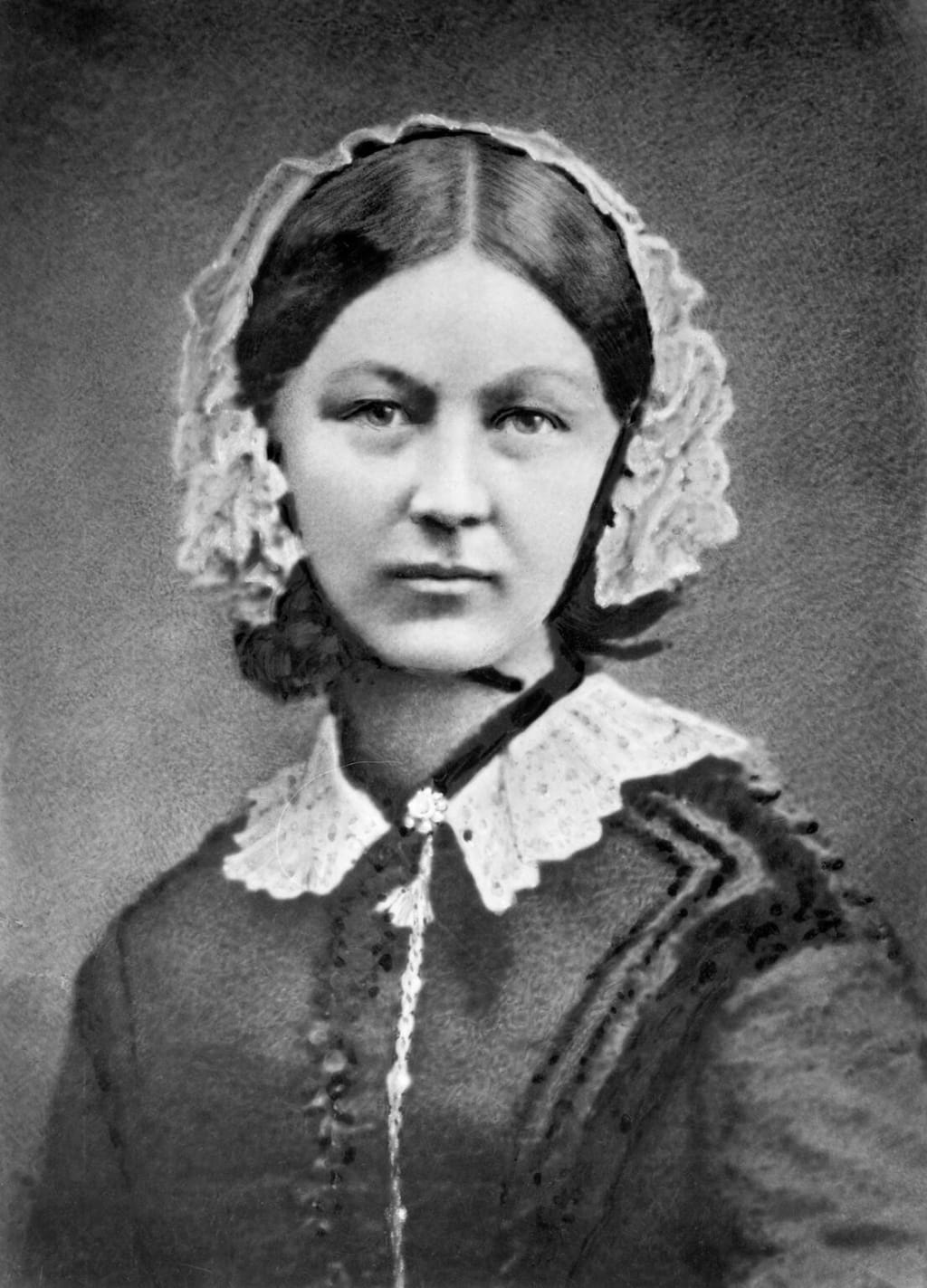Florence Nightingale
The unparalleled selflessness of Florence Nightingale

Florence Nightingale was born on May 12, 1820, in Florence, Italy, the second daughter of William Edward Nightingale, a wealthy landowner, and his wife Frances ("Fanny") Smith. Florence's older sister, Parthenope, was named after their mother's hometown, Daughters in Greece.
Nightingale's mother died when Florence was 5, and her father sent her and her sister away to live with their grandparents in Derbyshire, England. It was there that Florence developed her lifelong love of nature and animals. She also became a devout Christian and began to feel called to a life of service.
Nightingale was educated at home by her father and a series of governesses. She was an avid reader and had a thirst for knowledge. Against her father's wishes, she also began to study mathematics and physics, subjects considered inappropriate for young ladies at the time.
In 1837, at the age of 17, Florence contracted "spinal fever" and was bedridden for many months. She later claimed that this experience was when she first felt the call to nursing.
After recovering, Nightingale continued her studies, now intending to become a nurse. However, her father opposed her chosen profession, believing it to be below her standard of living. In 1844, against his wishes, she left to work as a nurse at a London hospital for invalid women.
After a year, Nightingale returned home to Italy, where she briefly worked in a hospital. She then accepted a position as a governess at the estate of an English family living in Florence.
In 1850, Nightingale's father died, leaving her with a substantial inheritance. She used her new financial independence to continue studying nursing in Germany and France.
On October 21, 1854, Florence Nightingale and a team of 38 nurses arrived in Scutari, a city in the Ottoman Empire (present-day Turkey). They were sent by the British government to help care for sick and wounded soldiers from the Crimean War.
Conditions in Scutari were terrible. Hospitals were overcrowded and unsanitary, and there was a severe shortage of medical supplies. Many patients suffered from diseases such as typhoid and cholera, and many more were wounded in battle.
In 1854, the Crimean War broke out, pitting Russia against an alliance of Britain, France, and the Ottoman Empire. The war was fought for control of the Black Sea, and it quickly became apparent that British and French forces were ill-prepared for the brutal conditions of the Crimean winter.
To remedy this, Florence Nightingale, a young woman from England, volunteered to travel to Crimea and provide nursing care to wounded soldiers. She arrived in December 1854 and quickly began to change the lives of the men in her care. She became known as the "Lady with the Lamp" because she often made rounds at night, checking on patients and offering them words of comfort.
In 1820, Florence Nightingale was born into a wealthy British family. When she was only eighteen years old, she felt a calling to serve God and decided to become a nurse. In 1850 she went to work in a hospital in London and quickly realized that the conditions there were unacceptable. The hospital was overcrowded and dirty and the staff was overworked.
Nightingale decided to make it her mission to improve conditions in the hospital. She advocated for better hygiene, more staff, and more resources. She also became a pioneer in statistics, using data to show the correlation between hygiene and death rates. Her work has saved countless lives and helped improve the standard of care in hospitals around the world.
Nightingale was truly a pioneer in her field. Her work had a lasting impact on the way hospitals operate today.
Nightingale founded a training school for nurses at St. Thomas's Hospital in London, which developed into a very successful institution. She wrote Notes on Nursing, a text used in nursing education today. She was also a tireless advocate of social reform and better hygiene.
Florence Nightingale is best known for her work as a nurse during the Crimean War, caring for sick and wounded soldiers. She is also credited with changing the way nursing was viewed and practiced. Her work during the war and her writings on nursing helped raise the standards of the profession and increase its respect.
Nightingale was a tireless advocate of improving conditions for sick and wounded soldiers. She also worked to improve the standards of nursing care. Her work helped make nursing a more respected profession, and her legacy continues to influence the nursing profession today.
About the Creator
Enjoyed the story? Support the Creator.
Subscribe for free to receive all their stories in your feed. You could also pledge your support or give them a one-off tip, letting them know you appreciate their work.





Comments
There are no comments for this story
Be the first to respond and start the conversation.